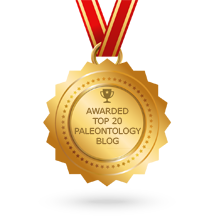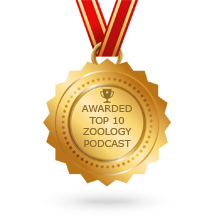Browsing the "Paleozoic" Category
The Paleozoic era, meaning “ancient life”, is a division of earth’s history spanning from around 541 to 252 million years ago. It is subdivided into the Cambrian, Ordovician, Silurian, Devonian, Carboniferous and Permian periods. The beginning of the Paleozoic is characterised by the sudden appearance of animal ecosystems following the extinction of the Precambrian Ediacaran fauna. The end of the Paleozoic is marked by the greatest mass extinction in earth’s history, following which global ecosystems were radically reorganised.

Published on May 1st, 2020 | by Liz Martin-Silverstone
Early tetrapods include the earliest animals to grow legs, and their closest ancestors. Moving from the water to land required a number of changes within the skeleton and muscular system, related to moving from swimming to [&hellip... Read More →

Published on January 1st, 2020 | by Elsa Panciroli
Herpetology is the study of reptiles, amphibians and caecilians. This includes frogs, salamanders, crocodiles, snakes, lizards and tuatara, to name just a few. These cold-blooded tetrapods have an evolutionary history that reaches back to the Carboniferous. [&hellip... Read More →

Published on August 14th, 2019 | by David Marshall
Between the weird and wonderful rangeomorphs of the Ediacaran Period and the world-famous palaeocommunities of the Burgess Shale, the ‘Early Cambrian’ is host to a ‘waste basket’ of fossils untied by their small size and shelly [&hellip... Read More →

Published on May 24th, 2019 | by Vishruth Venkat
One of palaeontology‘s great themes of questioning is the rise of novelty: how new structures and functions arise in specific lineages. In this episode we speak with Neil Shubin, Professor of Organismal Biology at the University [&hellip... Read More →

Published on March 1st, 2019 | by David Marshall
We explore opsins and the evolution of colour vision in ecdysozoans... Read More →

Published on January 1st, 2019 | by David Marshall
Decapods are a group of crustaceans that include such well-known families as crabs, lobsters and shrimp. Whilst crustaceans are known from as early as the Cambrian, we don’t see the first decapods until Devonian. Over the [&hellip... Read More →

Published on September 17th, 2018 | by Liz Martin-Silverstone
The Carboniferous was a time of huge swampy forests, big trees, and lots of life both on land and in the ocean. One world-renowned fossil site from approximately 300 million years ago is the Joggins Fossil [&hellip... Read More →

Published on April 17th, 2018 | by Liz Martin-Silverstone
Tooth shape and arrangement is strongly linked with diet, and palaeontologists often use teeth to determine what kind of food an animal may have been eating. Carnivorous teeth are generally more simple, while herbivorous teeth are [&hellip... Read More →

Published on February 1st, 2018 | by David Marshall
The Carboniferous (Latin for ‘coal-bearing’) is a period of the Paleozoic Era named after the massive accumulations of coal that were formed globally during this time. These coal deposits were the fuel for the Industrial Revolution [&hellip... Read More →

Published on December 31st, 2017 | by Chris Barker
Christmas was not particularly kind for one titanosuchid. Published on the day many were receiving gifts and well wishes, this Permian reptile was given the bad news that it was suffering from a bout of osteomyelitis, [&hellip... Read More →






















